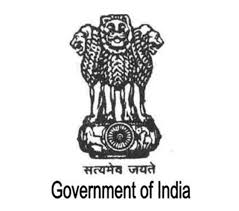The Indus Valley civilization, one of the world's oldest, flourished during the 3rd and 2nd millennia B.C. and extended into northwestern India. Aryan tribes from the northwest infiltrated the Indian subcontinent about 1500 B.C.; their merger with the earlier Dravidian inhabitants created the classical Indian culture. The Maurya Empire of the 4th and 3rd centuries B.C. - which reached its zenith under ASHOKA - united much of South Asia. The Golden Age ushered in by the Gupta dynasty (4th to 6th centuries A.D.) saw a flowering of Indian science, art, and culture. Islam spread across the subcontinent over a period of 700 years. In the 10th and 11th centuries, Turks and Afghans invaded India and established the Delhi Sultanate. In the early 16th century, the Emperor BABUR established the Mughal Dynasty, which ruled India for more than three centuries. European explorers began establishing footholds in India during the 16th century.
By the 19th century, Great Britain had become the dominant political power on the subcontinent. The British Indian Army played a vital role in both World Wars. Years of nonviolent resistance to British rule, led by Mohandas GANDHI and Jawaharlal NEHRU, eventually resulted in Indian independence, which was granted in 1947. Large-scale communal violence took place before and after the subcontinent partition into two separate states - India and Pakistan. The neighboring nations have fought three wars since independence, the last of which was in 1971 and resulted in East Pakistan becoming the separate nation of Bangladesh. India's nuclear weapons tests in 1998 emboldened Pakistan to conduct its own tests that same year. In November 2008, terrorists originating from Pakistan conducted a series of coordinated attacks in Mumbai, India's financial capital. Despite pressing problems such as significant overpopulation, environmental degradation, extensive poverty, and widespread corruption, economic growth following the launch of economic reforms in 1991 and a massive youthful population are driving India's emergence as a regional and global power.
India is a federal parliamentary republic.
Source: CIA World Factbook
Members:
Resources
Displaying 71 - 75 of 91THE MARRIED WOMEN’S PROPERTY ACT (1874)
INDIA Act III, 1874....."Whereas it is expedient to make such provision as hereinafter appears for the enjoyment of
wages and earnings by women married before the first day of January, 1866, and for insurances
on lives by persons married before or after that day:
And whereas by the Indian Succession Act, 1865, section 4,1 it is enacted that no person shall by
marriage acquire any interest in the property of the person whom he or she marries, nor become
incapable of doing any act in respect of his or her own property, which he or she could have
THE HINDU WIDOWS’ REMARRIAGE ACT (1856)
INDIA Act XV, 1856....."Whereas it is known that by the law as administered in the civil Courts, Hindu widows with
certain exceptions are held to be, by reason of their having been once married, incapable of
contracting a second valid marriage, and the offspring of such widows by any second marriage
are held to be illegitimate and incapable of inheriting property;...
THE CASTE DISABILITIES REMOVAL ACT, I850
INDIA ACT XXI, 1850....."Whereas it is enacted by section 9, Regulation VII, 1832, of the Bengal Code, that “whenever in
any civil suit the parties to such suit may be of different persuasions, when one party shall be of
the Hindu and the other of the Muhammadan persuasion, or where one of more parties to the suit
shall not be either of the Muhammadan or Hindu persuasions, the laws of those religions shall
not be permitted to operate to deprive such party or parties of any property to which, but for the
Kerala Land Conservancy (Amendment) Act, 2009 (Act No. 29 of 2009).
This Act amends the Kerala Land Conservancy Act, 1957.Amendments include: word changes to the long title and to the preamble; substitution of section 7 with a new section on punishments for the unauthorized occupation of land which is property of the Government; substitution of sections 8 and 9 with new sections on offences; minor word changes to sections 11, 14, 16, 17 and 19; omission of clause (a) and (b) of section 13; and substitution of section 20A(1) on bar of jurisdiction of Civil Courts.
Amends: Kerala Land Conservancy Act, 1957 (Act No. 8 of 1958). (1971)



